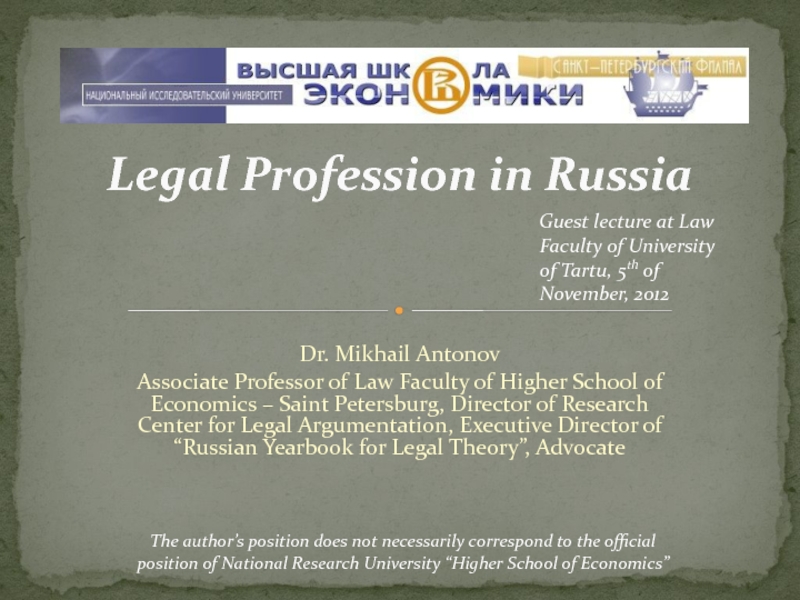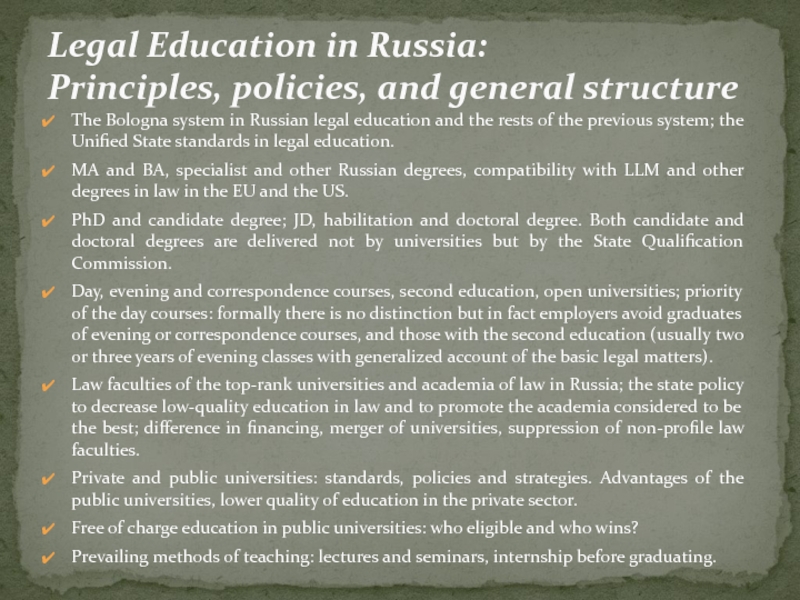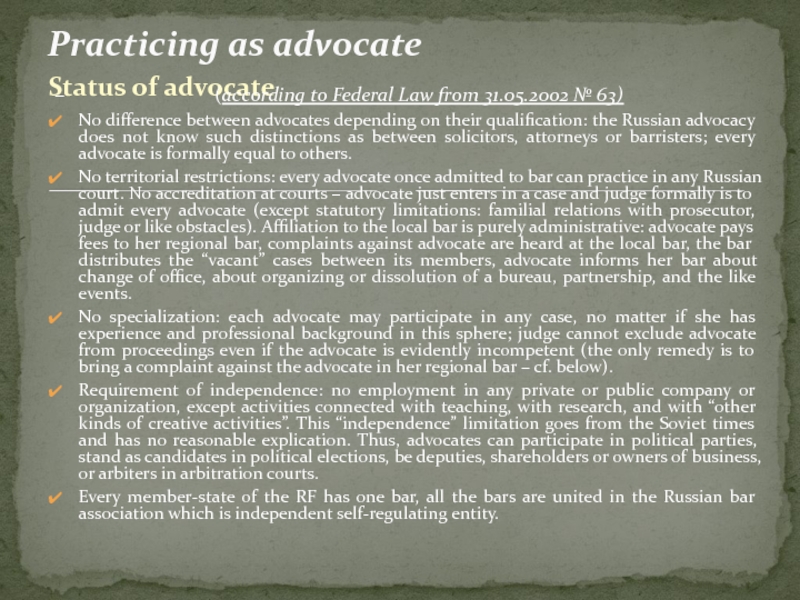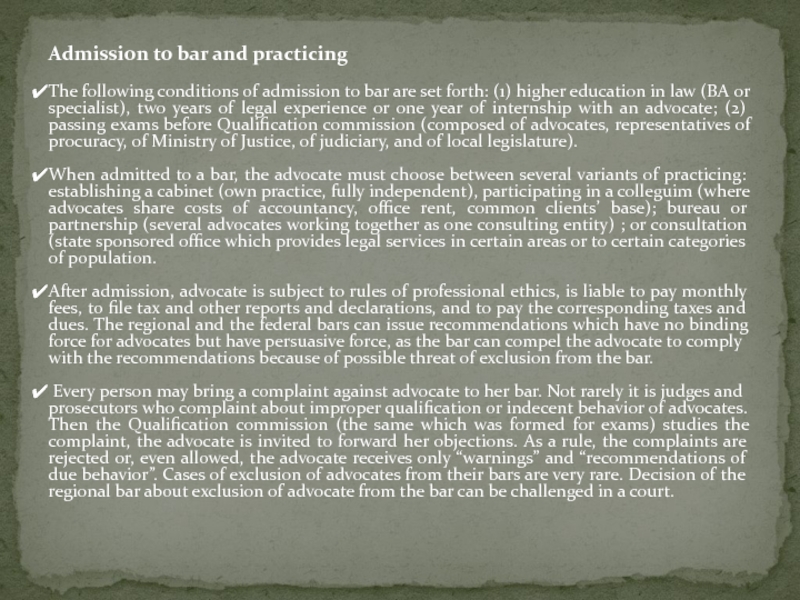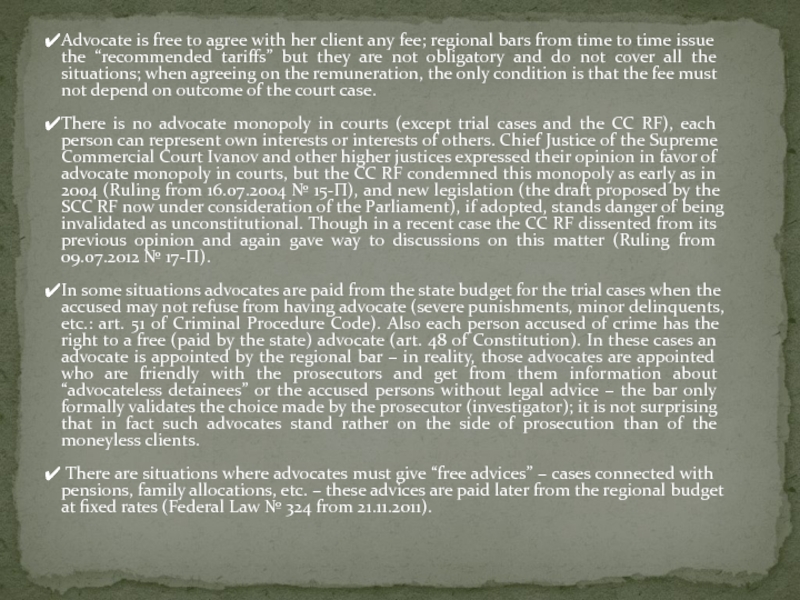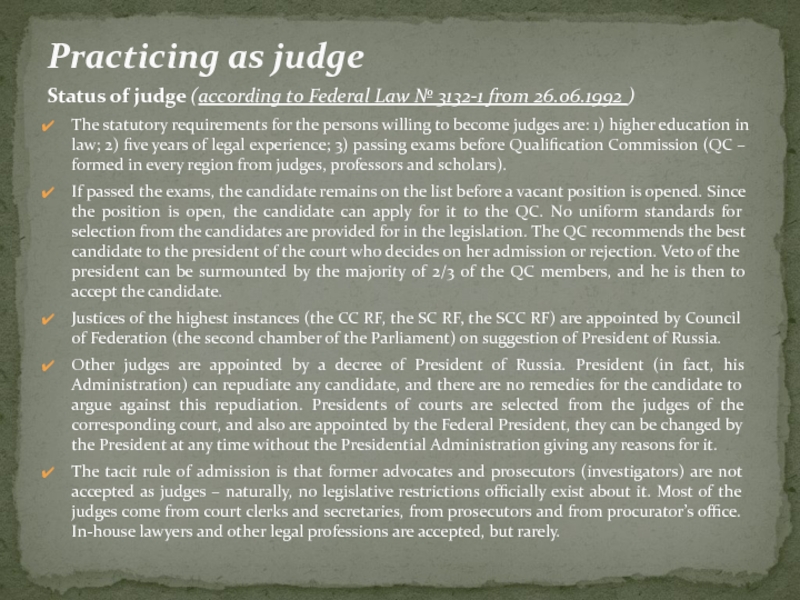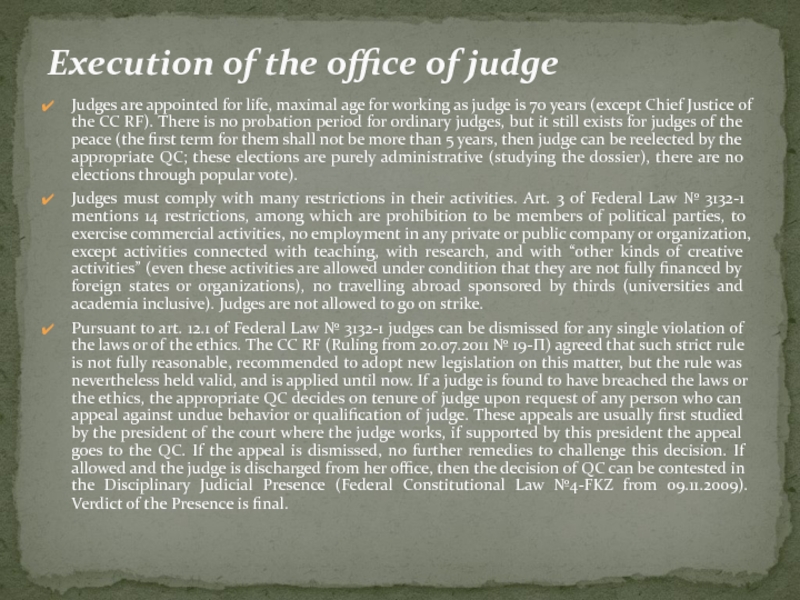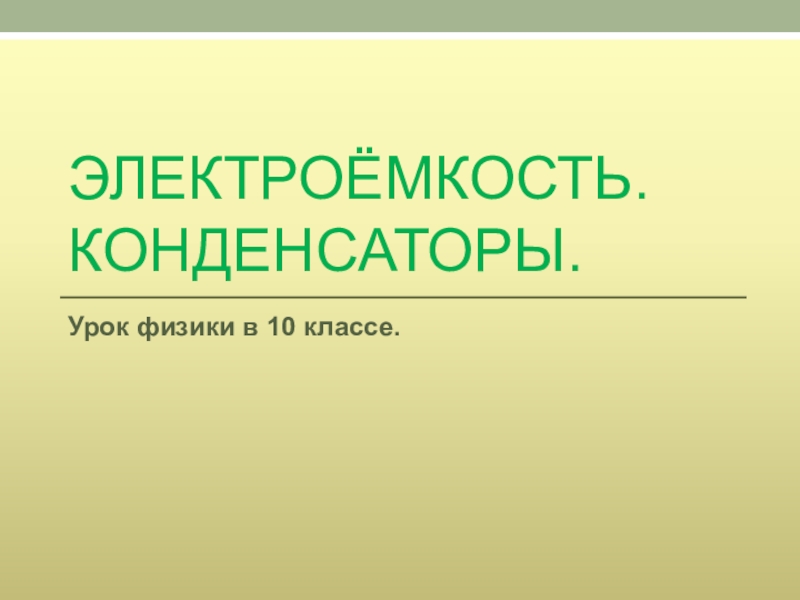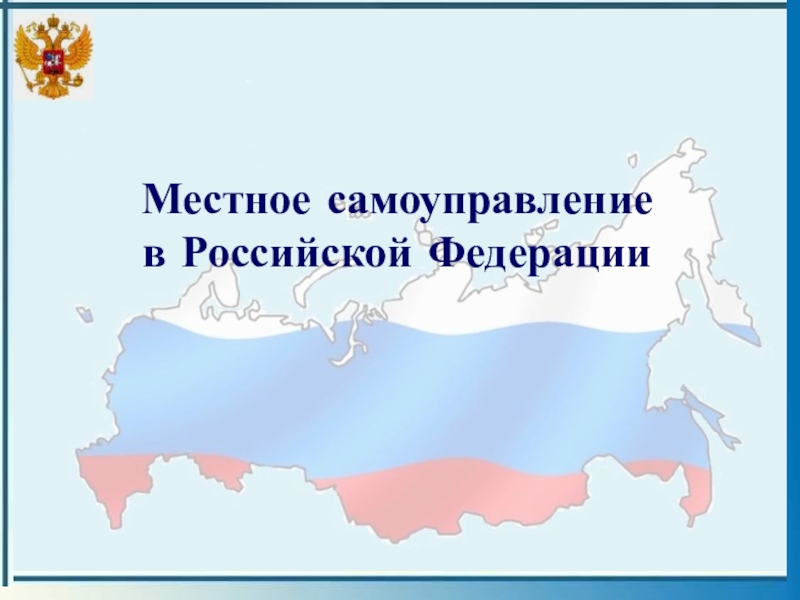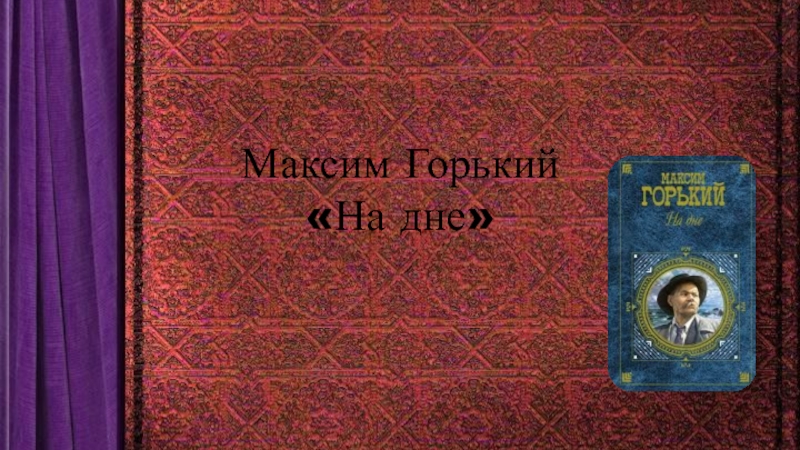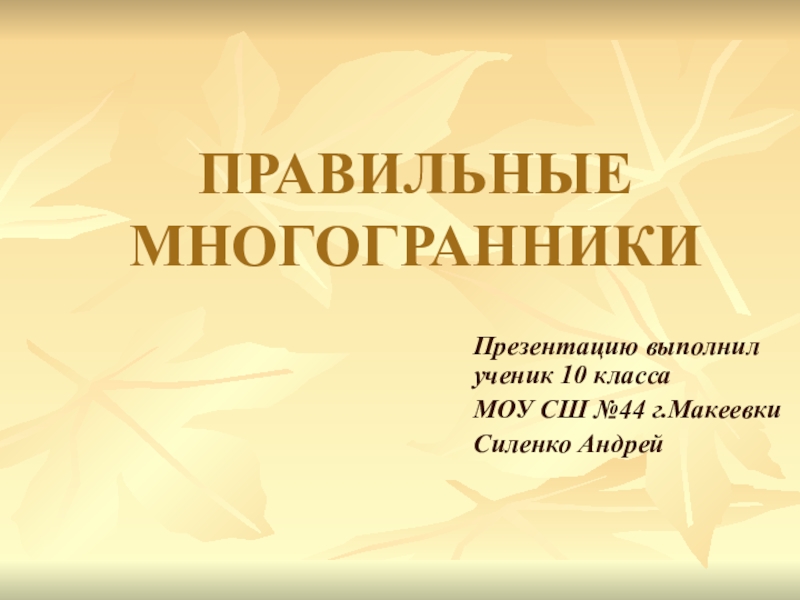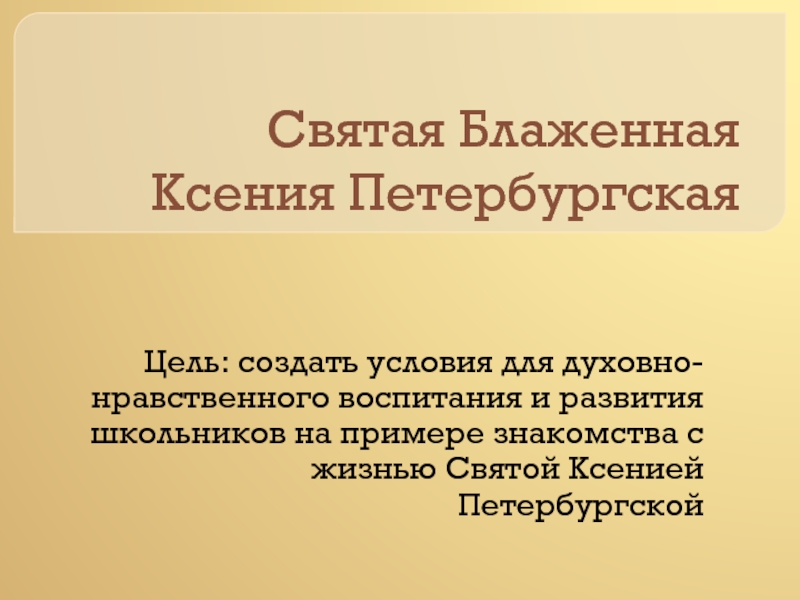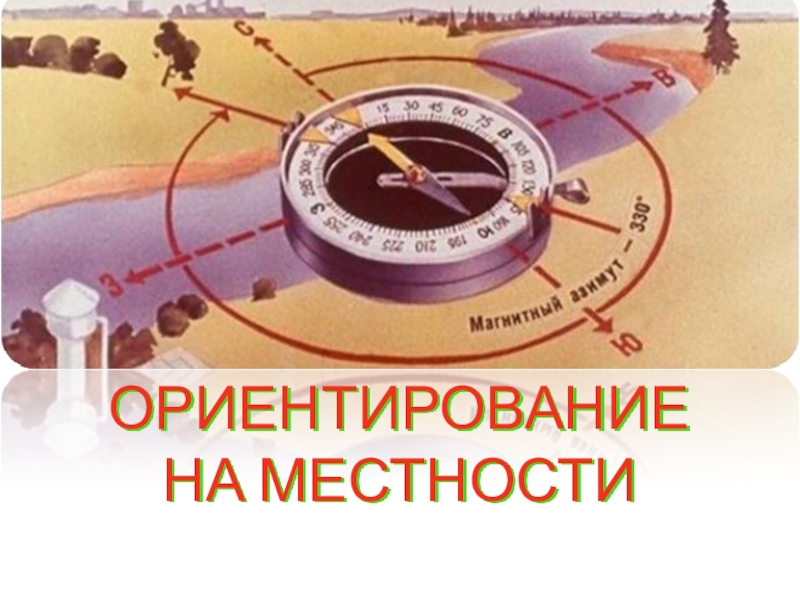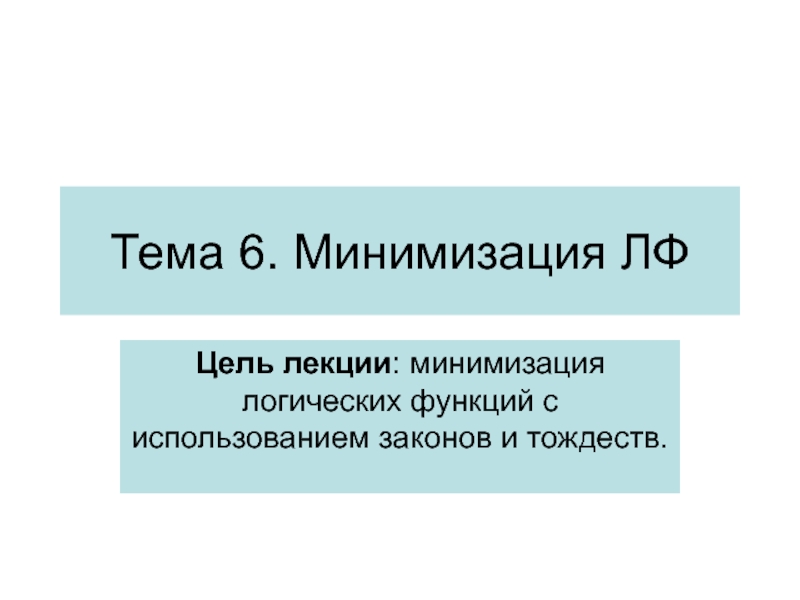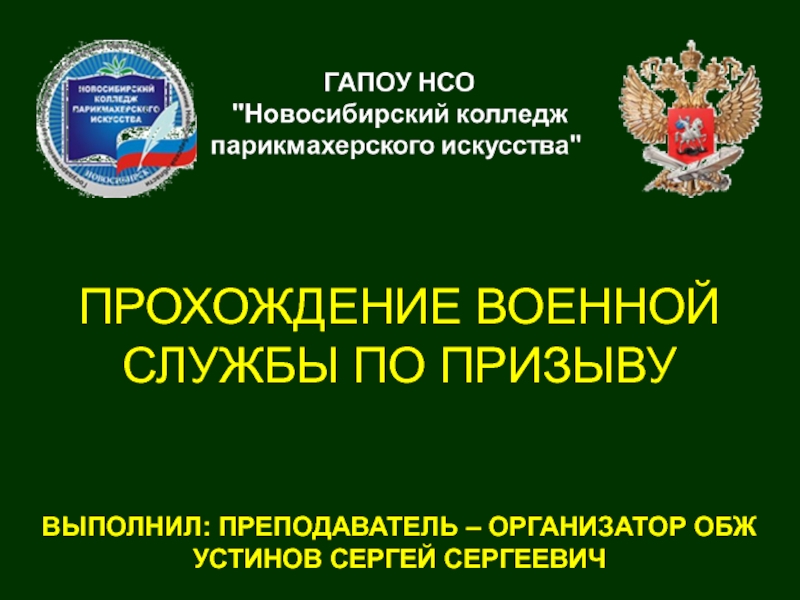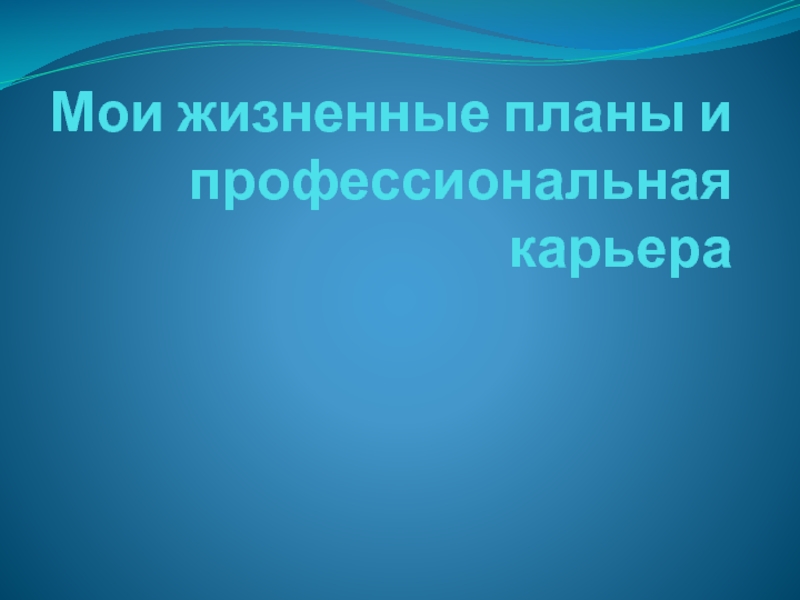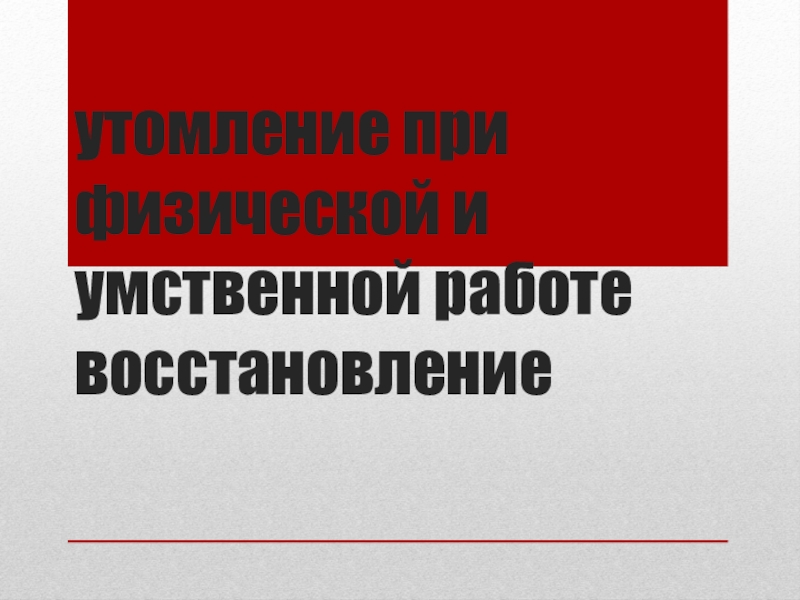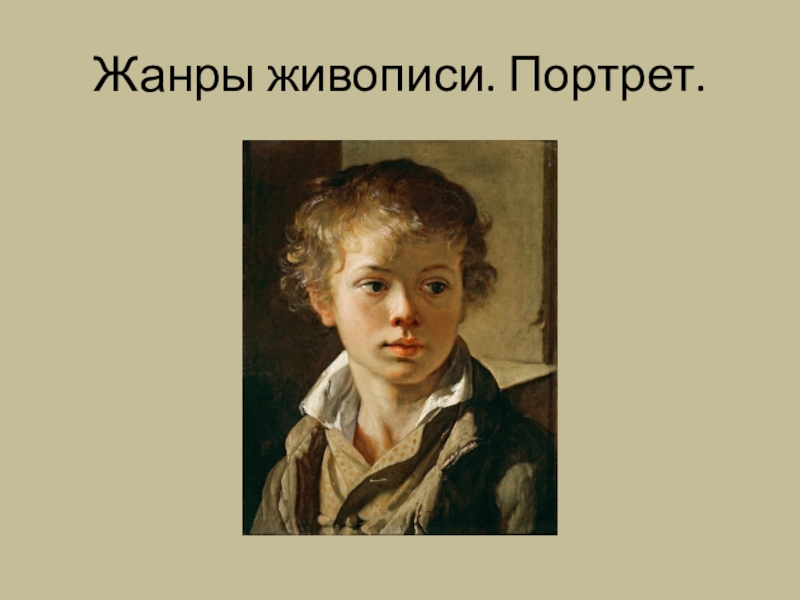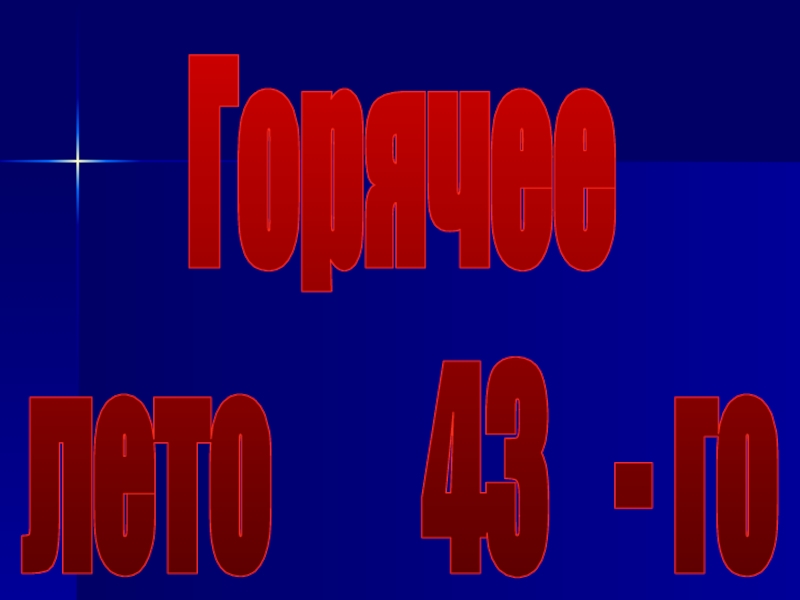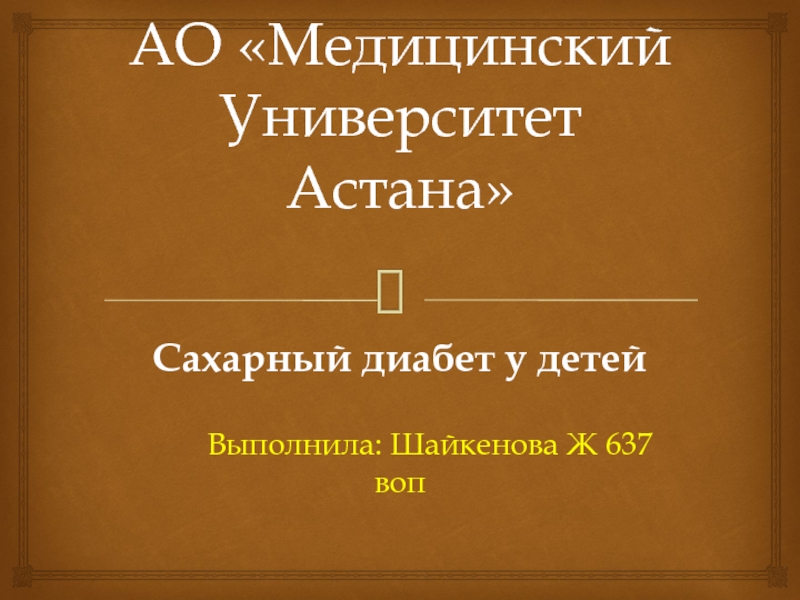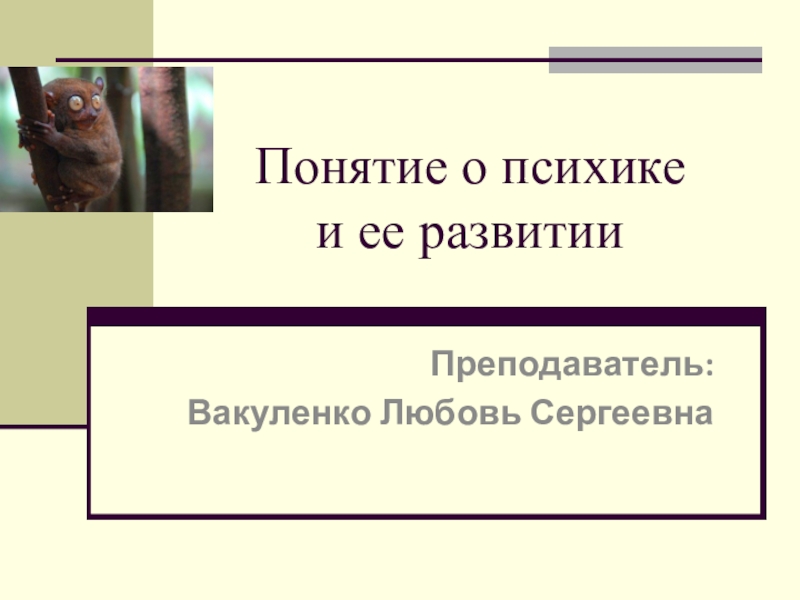of the previous system; the Unified State standards in legal
education.
MA and BA, specialist and other Russian degrees, compatibility with LLM and other degrees in law in the EU and the US.
PhD and candidate degree; JD, habilitation and doctoral degree. Both candidate and doctoral degrees are delivered not by universities but by the State Qualification Commission.
Day, evening and correspondence courses, second education, open universities; priority of the day courses: formally there is no distinction but in fact employers avoid graduates of evening or correspondence courses, and those with the second education (usually two or three years of evening classes with generalized account of the basic legal matters).
Law faculties of the top-rank universities and academia of law in Russia; the state policy to decrease low-quality education in law and to promote the academia considered to be the best; difference in financing, merger of universities, suppression of non-profile law faculties.
Private and public universities: standards, policies and strategies. Advantages of the public universities, lower quality of education in the private sector.
Free of charge education in public universities: who eligible and who wins?
Prevailing methods of teaching: lectures and seminars, internship before graduating.
Legal Education in Russia:
Principles, policies, and general structure
